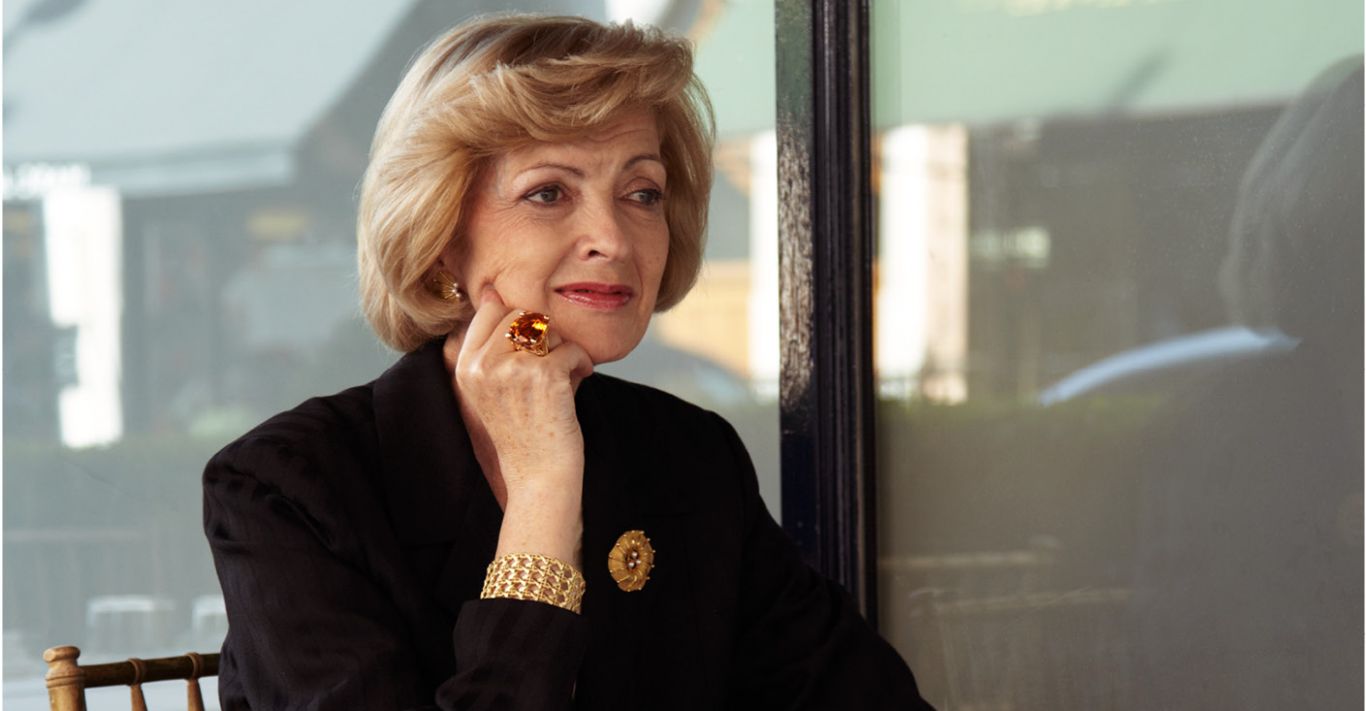PHOTOGRAPHY
Philip Sinden
Throughout my career, I’ve learned that, as a woman, if you don’t ask, you don’t get. I qualified as a solicitor in 1973, and worked with big City firm Coward Chance, now Clifford Chance, before joining my current firm CMS (formerly McKenna & Co) in 1978, and by 1981 I was a partner, but I had to ask for it.
I think my bosses were a little surprised, as they hadn’t really thought about it. They weren’t against the idea, but I had to ask, ‘Are you going to make me a partner anytime soon?’, and they said, ‘Oh, would you like to be partner?’ My brother said to me at that time, ‘If you behave like a doormat, you get treated like a doormat,’ and this is very true.
In 1981 I was also asked if I wanted to go to the Bahrain office. While I had not thought of it as a place to send a woman, I said yes, and it was completely transformative.
I went there for three years; I ran what was a banking and project finance practice, and I had a ball actually, as I was pretty much the only woman there leading a business in her early 30s.
When I came back to the UK, I worked on the Channel Tunnel project. I was then a beneficiary of Margaret Thatcher’s privatisation years when I worked on the water privatisation and then the electricity privatisation, and I’m still working for the National Grid.
I’ve since worked on electricity reforms and projects all around the world, and generally people have respected my professional credentials and my experience. I’ve found that if you can respond to what people need, you can use that to build a relationship on their terms. But you have to understand different cultures, as some cultures are very consensus building and more gentle when negotiating than we are in the west, and having empathy is important. There is always a balance to be struck. A lot of women are accused of not being assertive enough, but as a woman, I also think it’s good in some circumstances to take things with some humour. I advise people to be yourself and make sure you understand the environment you’re in.
When I was Lord Mayor of London in 2013/14, I put diversity and inclusion at front and centre of my mayoral programmes, because it was such an amazing opportunity being only the second woman to have been Lord Mayor since 1189. It was apparent that there was a big gap between what the senior leaders were doing and saying and what the rest of the organisation felt accountable for.
We found we need to look at what’s going on in the big middle of the organisation where the keepers of the talent pipeline are, as well as what the new entrants can do in terms of making their presence felt and their voice heard. We tend not to measure people on how well they do at developing the people in their team, because it is easier to measure them on their income generation and their business development, so people are not being motivated to focus on the needs of their followers. This for me is all about effective leadership, which is inclusive leadership, and I’m pleased to see these thoughts are resonating more and people are now working hard on it at all levels.
My motto in life is ‘get lucky and say yes’, the message behind it being that you can do a lot to create your own luck – to be at the right place at the right time, and to focus on what knowledge you need and what networks are there that could be useful to you. The other thing that’s very important is to make yourself useful. You can get lucky by finding out what’s the most useful thing you can do for your boss that would make a difference to him or her, so you begin to look as though you’re thinking like your boss and, therefore, you’re looking like an emerging leader yourself.
You can create your own luck by thinking about what you need as a person to succeed in wherever you’d like to go. I’m a great fan of development plans, so if you think about where you’d like to be in three or five years’ time, it forces you to think about what you need to get there and then you can share it with somebody else, who can become your mentor; share it with your boss and say, ‘Have I thought of everything?’
The other part of saying yes is that it involves getting out of your comfort zone. Every time you start a new job or piece of work and every time you go to an interview it’s very daunting, but when you get out of your comfort zone and rise to a challenge, there’s nothing more rewarding than the feeling that you did something new and you achieved something you can feel proud of.




